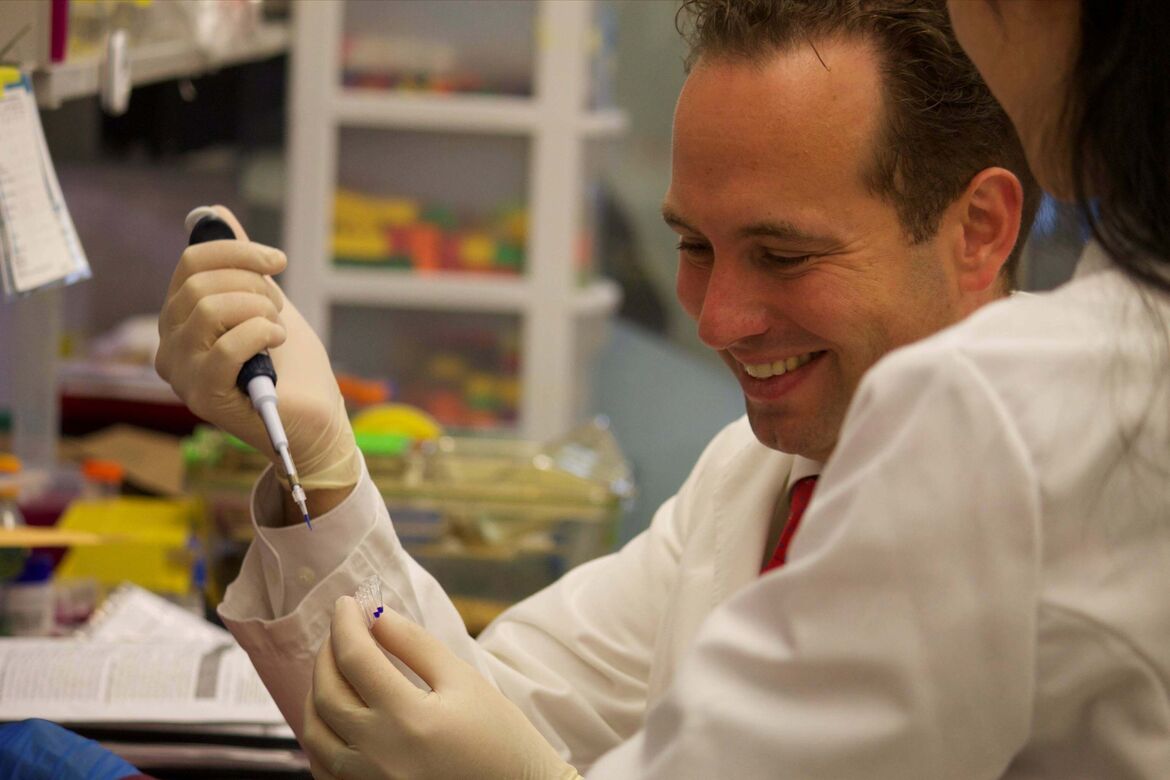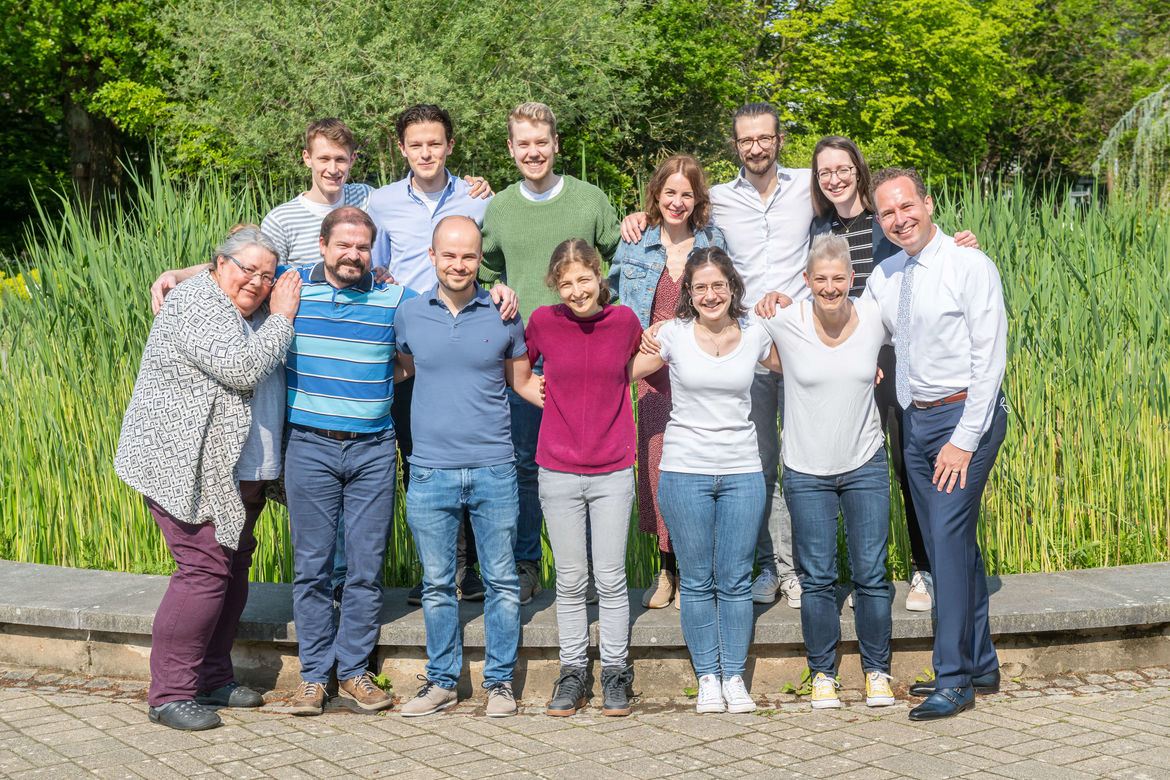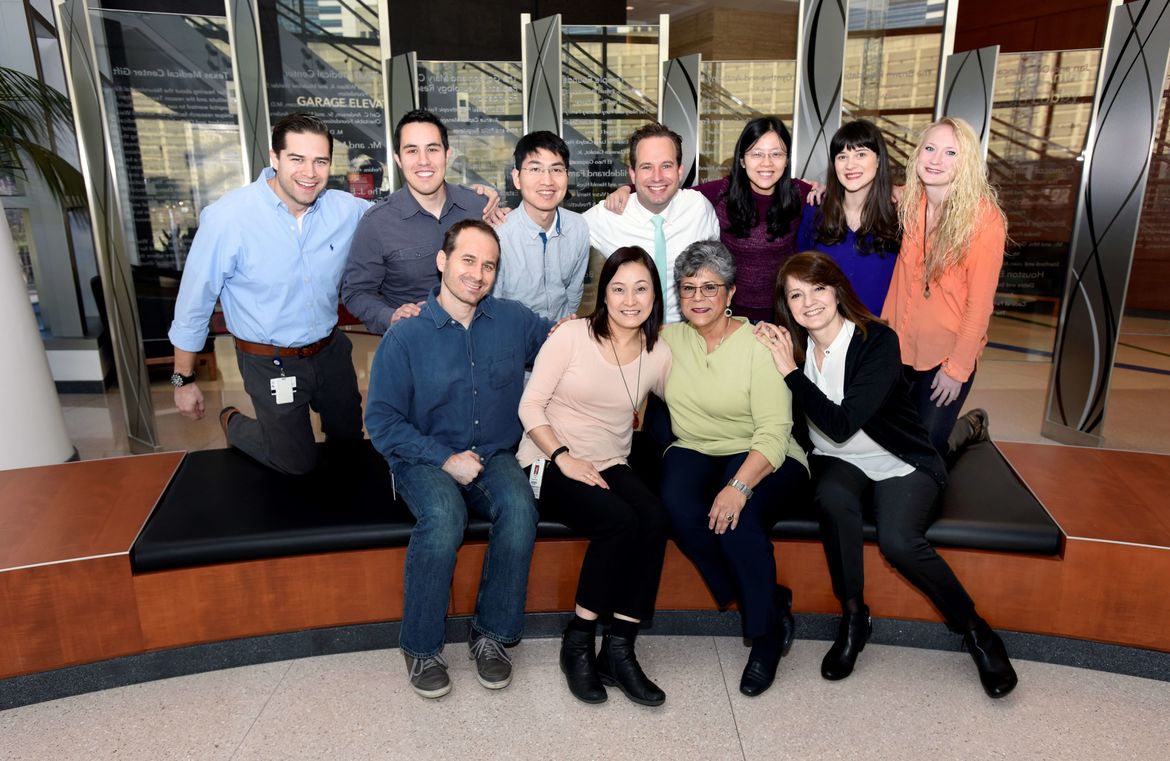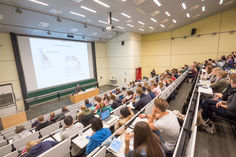- Section Nephrogenetics (AG Simons)
- Seniorprofessorship Prof. Rappold
- Molecular Neurogenetics (AG Berkel)
- Cardiogenetics (AG Hoffmann)
- Neurogastrogenetics
- Transcriptional regulation in developmental disorders (AG Laugsch)
- Genetics of neurodevelopmental disorders (AG Schaaf)
- Mouse models for neurodevelopmental disorders
- Research in our Diagnostic Laboratories
- Publications
Genetics of Neurodevelopmental Disorders
The Schaaf Lab aims to understand how genes influence human cognition and behavior. We are dedicated to investigating the genetic basis of neurodevelopmental and neuropsychiatric disorders. Our focus is on translational research. All of our research projects relate to actual patients encountered in clinic. We consider ourselves solvers of medical mysteries. By treating each patient with respect and curiosity, we can make a real difference in the affected individuals’ lives. At the same time, this allows us to make seminal discoveries in the field of neuropsychiatric disease research. We take a multi-facetted approach, including basic biochemical and cell biological studies, animal models, and clinical trials in human patients.

Our current research focuses on the following genes and their associated phenotypes in the context of neuropsychiatric disease:
- MAGEL2, an imprinted gene in the Prader-Willi syndrome locus, truncating mutations of which are the cause of Schaaf-Yang syndrome (OMIM #615547)
- NR2F1, the gene for Bosch-Boonstra-Schaaf Optic Atrophy syndrome (OMIM #615722), a neurodevelopmental disorder characterized by vision impairment and intellectual disability
- USP7, mutations of which cause Hao-Fountain syndrome (OMIM #616863)
- PRKAR1B in the context of Marbach-Schaaf neurodevelopmental syndrome (OMIM #619680) as well as
- OTUD7A and CHRNA7, both of which are important for 15q13.3 microdeletion and -duplication syndromes.
Team Members
Recent Publications
1. Gillentine, M. A. et al. Functional consequences of CHRNA7 copy-number alterations in induced pluripotent stem cells and neural progenitor cells. Am. J. Hum. Genet. 101, 874–887 (2017).
2. Yin, J. et al. Otud7a knockout mice recapitulate many neurological features of 15q13.3 microdeletion syndrome. Am. J. Hum. Genet. 102, 296–308 (2018).
3. Crutcher, E. et al. mTOR and autophagy pathways are dysregulated in murine and human models of Schaaf-Yang syndrome. Sci. Rep. 9, 15935 (2019).
4. Schaaf, C. P. et al. A framework for an evidence-based gene list relevant to autism spectrum disorder. Nat. Rev. Genet. 21, 367–376 (2020).
5. Chen, C.-A. et al. Nr2f1 heterozygous knockout mice recapitulate neurological phenotypes of Bosch-Boonstra-Schaaf optic atrophy syndrome and show impaired hippocampal synaptic plasticity. Hum. Mol. Genet. 29, 705–715 (2020).
6. Marbach, F. et al. Variants in PRKAR1B cause a neurodevelopmental disorder with autism spectrum disorder, apraxia, and insensitivity to pain. Genet. Med. 23, 1465–1473 (2021).
Lab Pictures






- Section Nephrogenetics (AG Simons)
- Seniorprofessorship Prof. Rappold
- Molecular Neurogenetics (AG Berkel)
- Cardiogenetics (AG Hoffmann)
- Neurogastrogenetics
- Transcriptional regulation in developmental disorders (AG Laugsch)
- Genetics of neurodevelopmental disorders (AG Schaaf)
- Mouse models for neurodevelopmental disorders
- Research in our Diagnostic Laboratories
- Publications
![[Translate to English:] [Translate to English:]](/fileadmin/_processed_/8/2/csm_20131204_Beratung_035_a396c6c6e5.jpg)
![[Translate to English:] [Translate to English:]](/fileadmin/_processed_/a/0/csm_20170627_PflegeOrtho_001_fb912471fa.jpg)
![[Translate to English:] [Translate to English:]](/fileadmin/_processed_/f/c/csm_20170215_LaborOMZ_155_c0169c0898.jpg)
![[Translate to English:] [Translate to English:]](/fileadmin/_processed_/2/c/csm_20180523_Labor_139_6ebb9a0a1b.jpg)



![[Translate to English:] Portrait von Dr. rer. nat. Henning Martin Fröhlich [Translate to English:] Portrait von Dr. rer. nat. Henning Martin Fröhlich](/fileadmin/_processed_/2/7/csm_Froehlich_Henning_4210cf3604.jpg)





